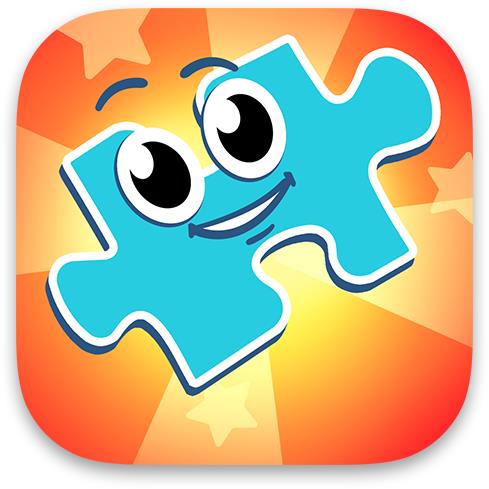id="trbo-above-first-editorial"
id="trbo-below-fragment-0"
Time for children
Explore ideas for play time or reading time
Family time is so precious! Discover new ideas for playful fun and reading activities when you can spend some time together.
id="trbo-below-fragment-1"
Puzzle-App for kids
With the Ravensburger Puzzle Junior app, little puzzle fans can enjoy their first experience of puzzling. The app has been designed with the abilities of pre-school children in mind. Puzzle pieces cannot be accidentally turned, and the table is fixed in the middle, enabling children to fully concentrate on putting the puzzle together. More than one child can do a puzzle at the same time.
Designed with children in mind, everything is explained with easy to follow icons and animations – there is no need for your child to be able to read to enjoy the app.
Designed with children in mind, everything is explained with easy to follow icons and animations – there is no need for your child to be able to read to enjoy the app.
id="trbo-below-fragment-2"
Colouring Pictures - Painting by numbers
Cat
Painting by numbers
Download
Dogs
Painting by numbers
Download
Rabbit
Painting by numbers
Download
Colouring Mandalas - Lamas
Lama 01
Mandala
Download
Lama 02
Mandala
Download
Lama 03
Mandala
Download
Lama 04
Mandala
Download
Colouring Mandalas - Tropical Pictures
Tropical 01
Mandala
Download
Tropical 02
Mandala
Download
Tropical 03
Mandala
Download
Tropical 04
Mandala
Download
Colouring Mandalas - Unicorns
Unicorn 01
Mandala
Download
Unicorn 02
Mandala
Download
Unicorn 03
Mandala
Download
Unicorn 04
Mandala
Download
id="trbo-below-fragment-3"
GraviTrax Video-Tutorials: Tricks & Tracks
Track 01
GraviTrax Video-Tutorial
Track 02
GraviTrax Video-Tutorial
Track 03
GraviTrax Video-Tutorial
Track 04
GraviTrax Video-Tutorial
Track 05
GraviTrax Video-Tutorial
Track 06
GraviTrax Video-Tutorial
Track 07
GraviTrax Video-Tutorial
Track 08
GraviTrax Video-Tutorial
id="trbo-below-fragment-4"
Craft Activity Ideas - Print at home, then make and glue your own mosaic tile pictures
Butterflies
Mosaic
Download
Flamingo
Mosaic
Download
Mermaid
Mosaic
Download
Craft Activity Ideas - Make it yourself
Bracelets
Craft Activity Ideas
Download
Dream Catchers
Craft Activity Ideas
Download
Hold it
Craft Activity Ideas
Download
Lavender Pillows
Craft Activity Ideas
Download
id="trbo-below-fragment-5"
id="trbo-below-fragment-6"
What about playing alone?
At the moment, many of us are facing the challenge of juggling family and work life at the same time and in the same place. Over the coming weeks there will be times when your child will need to play on their own. Rest assured that children can benefit from some independent play time. After all, everyone needs time and space now and then to concentrate on themselves and reflect.
Why is playing alone so important, especially for children?
Playing alone is important because it strengthens children's own self-efficacy from an early age – this is the sense that ‘I can do this’. Independent play helps build concentration and the development of self-efficacy - these are important skills that can be used as a basis for further learning experiences.When can children start playing alone?
Small children can play alone for up to half an hour, children from the age of three can enjoy solo play for longer periods of time. They begin to enjoy being alone and like to retreat from time to time to play, paint or do crafts.How can I help to create independent play time?
Try to create opportunities for playtime alone when you can. In normal, everyday life, it’s not always easy to find undisturbed time. Use the time in the next few weeks to bring out toys that have been put aside for a long time. If you can, involve your child in the choice of activity. How about creating a fun, play environment by making a new play corner together?Is playing more than just "occupation"?
Absolutely. During independent play, children are developing a variety of essential skills and exploring their imaginations.How can children keep busy on their own?
Every child is different. Many children love creative activities such as painting or handicrafts. Others like to read or enjoy puzzles – puzzling can encourage focus and relaxation, and offer a great sense of achievement when they finally find a long sought-after piece. Logic games and tricky challenges appeal to other children. All very different activities but all with one thing in common – they enable children to take some time out and focus on the here and now.id="trbo-below-fragment-7"
id="trbo-below-main-content"


